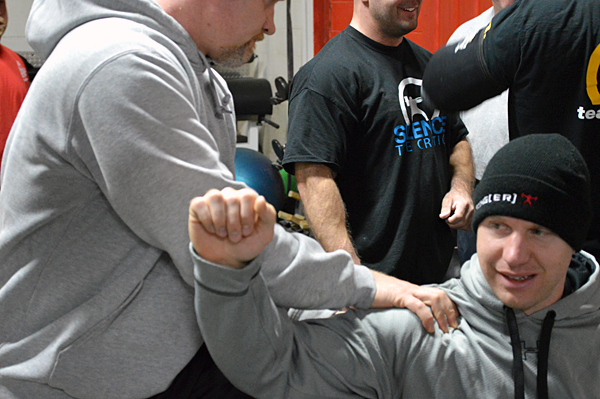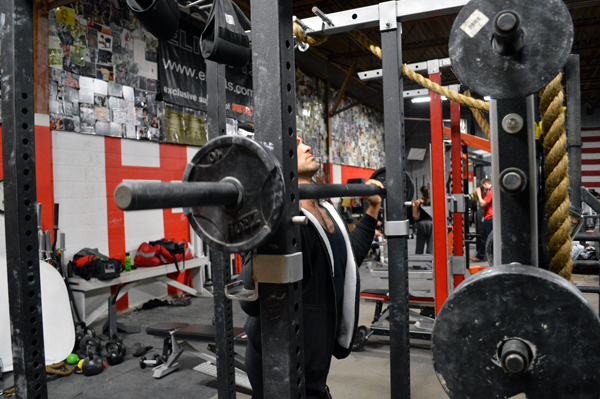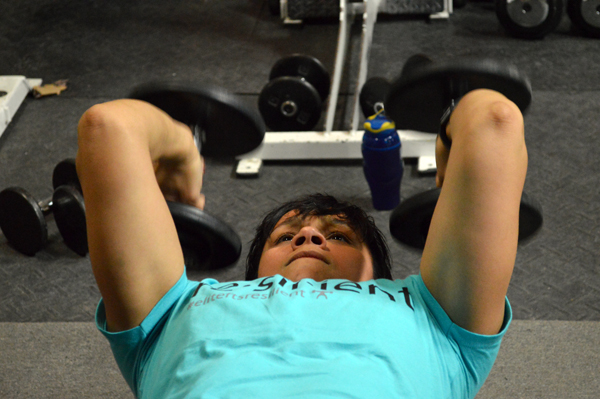
What exercises do more harm than good?
I asked this question in light of a post I made concerning my experience with two often maligned exercises: good mornings and behind the neck presses. I've used variants of these movements often, both with myself and with clients, and the criticism they receive is something with which I disagree. At the same time, I have also received some excellent feedback from lifters who are far more experienced than myself, telling me to be careful in the usage of these movements. Dave Tate even made one comment that made me reconsider my own stance. “One thing I like to often do, when I find people who have trained serious for more than 20 years, is ask, 'What exercises can you no longer do?' I then use this list as movements I will have people do only if absolutely needed. Start asking this question, and you will be surprised at how many people all share the same list of movements they can no longer do.”
With that in mind, I asked the question...and it ended up being a pretty amazing discussion. There was definite commonality in many of the answers, along with some pretty useful solutions as well. Movements that almost everyone screwed up include:
- Heavy Skullcrushers
- Heavy Overhead Triceps Extensions
- Any Heavy Triceps Extension
- Behind the Neck Press and Overhead pressing
- Dips
- Chin-ups
- Good Mornings
- Straight Bar Curls
So, why are these movements the most damaging? Two common reasons emerged:
- Lifters were going too heavy.
- These movements didn’t suit the lifter's anatomy, but the lifters did them anyways and paid a price for it.
Now, lest anyone thinks to abandon these movements completely, there were a number of strategies and tactics that were discussed. The overall strategic points were as follows:
Programming Strategies
- Recognize that assistance work does not need to be done heavy. This is why it's assistance work.
- Learn that when a particular exercise always aggravates a joint, a modification or alternative should be found.
- Alter the setup of a particular movement in order to make it more joint-friendly.
- Program enough variety in the assistance work to prevent overuse injuries.
Aside from these four strategies above, there were also many excellent tactics for assessing and modifying each movement.
Modifications to Joint-Unfriendly Movements
Ways to modify skullcrushers and triceps extension movements:
- Stick with pushdowns and close-grip presses.
- If doing any type of skullcrusher, perform the movement on an incline and with the angle of the elbows being beyond 90 degrees.
- Try using a rope and/or a cable attachment to lessen joint stress. If using a barbell, use an EZ curl bar. Keep reps around 10+ to avoid excess joint stress.
- Perform skullcrusher movements last in your training, after your joints are thoroughly warmed up and flushed with blood.
Ways to modify behind the neck and overhead pressing:
- Find a modification that does not aggravate your joints: seated, smith machine, dumbbells, and the machine press can all be effective.
- Experiment with different grips in order to find what is most comfortable.
- Don’t hesitate to wear wrist or elbow wraps to keep joints warm and stable.
- If your shoulder growth and/or strength gains are sub-par, then consider if you need to be doing overhead pressing relative to your particular sport and goals.
Ways to modify dips:
- Do you need to be doing dips? Ask yourself this question if the movement beats you up constantly.
- Utilize a complete but not exaggerated range of motion
- If doing them weighted, do not sacrifice technique for weight.
- Add weight in increments before strapping 100 pounds to your waist.
- Much like skullcrushers, sequence dips after you are thoroughly warmed up and your joints feel good.
Ways to modify good mornings:
- There is no strength contest for super heavy good mornings.
- If they do work for you, find a variation that suits you best.
- Good mornings can make for great accessory work, but they may not be the best choice for max effort work.
- If you find yourself convalescing from GMs more than recovering, ask yourself if they are actually making you stronger.
Ways to modify chin-ups:
- If you are a bigger guy (let's say 250+ pounds), chin-ups may do more harm than good over the long-run.
- Consider a neutral or pronated/overhand grip (pull-up) if you are going to do them.
- Using a monkey bar or an angled bar can be better than a straight bar.
- If doing them weighted, add weight in small increments.
- Recognize that past a certain point, more chin-ups does not equal more strength.
Ways to modify straight bar bicep curls:
- Don’t use a straight bar, use a curl bar/EZ bar.
- Some people cannot supinate all the way. If you are one of those people, don’t unnecessarily stress your biceps tendons. Pick a more joint-friendly variation.
- For direct arm work, going light may be a better long-term alternative to going heavy.
Exercise Alarmism?
In reading through the conversation, I practically do every single one of these exercises, and I realize that this could be misconstrued as exercise alarmism. The point, however, is not to discourage anyone from doing a particular exercise but to recognize what is more or less beneficial in the long-run. Everyone is different, and some people can get away with exercises or volumes that would readily break down another person. Personally, for example, I know that I can do an endless amount of dips with absolutely no ill effects. However, I can't compare myself to another lifter or to my clients. My shoulders are not your shoulders. Adopting a longevity-based perspective will keep you strong, healthy, and still lifting as you age. Learn from someone else who has lived and appreciate that they are passing it on.
*A special thanks to Dave Tate, John Meadows, Julia Ladewski, Chris Bartl, Jennica Kidd, Vic Tringali, Donnie Thompson, and everyone else who participated in this discussion.











